Bukavu is a small city on the south-western edge of Lake Kivu, in the Democratic Republic of the Congo, known to many for having been, for several years, terribly afflicted by regional conflict. Yet from 9 to 11 August, it was the location of a conference that brought together more than 950 youth from the North Kivu, Orientale and South Kivu provinces of the country, as well as participants from neighbouring Burundi and Rwanda, to explore their responsibility to make a positive contribution to the environments in which they live and work.
Many more wished to be present at the conference but were not able to attend given the difficult circumstances in the region. For those who participated, their travel was by no means easy due to the lack of infrastructure and the presence of military checkpoints. Despite these challenges and political tensions that strain relationships between the three countries, the venue of the conference was filled with love, joy, and unity. One of the participants from Rwanda expressed: “My family was scared to let me come to a conference in the Democratic Republic of the Congo, but I have really felt at home here.”
“I now feel able to work towards the transformation of my community.”
A participant at the conference
The conference started with a moving song chanted by 20 youth from Goma about the role of their generation, and was followed by many other songs and prayers, so characteristic of the joyful spirit that the friends in the region bring to every gathering. One of the participants said, “I was very touched by the call for service to the community that was shared in one of the songs.” Inspired by these musical presentations, the youth broke into groups to discuss various themes related to what they can offer to their communities’ spiritual and material development.
In their workshops, they examined the influence that various social forces exert on them and their actions. Some forces were described as negative, distorting young people’s view of the world, and others were defined as positive given their ability to impel them in their progress along a path of service. Having advanced in their understanding of these concepts, the young people went on to speak about how they could significantly impact the well-being of their communities by focusing their energies on assisting those younger than themselves to combat the negative forces and draw on positive ones. One of the outcomes of this conversation was to look for practical ways in which each group could translate their ideals into action upon their return home. They made maps, wrote down the names of friends with whom they would like to share what they had learned, and pledged to assist one another in their efforts.
As it had started, the conference ended with an expression of the cultural diversity across the region, portrayed in songs, dances, skits, and poems. But this time, three days later, friendships had been forged with those previously regarded as strangers and collective plans had been made to contribute to the spiritual and material development of each neighbourhood and village represented. Participants were ready and eager to return to their homes, where the dire consequences of civil strife are being felt, and play an active role in the construction of united communities. “The idea that I had about my role before the conference and the reality that I have observed here are very different,” said one of the participants. “I now feel able to work towards the transformation of my community.”
Return to top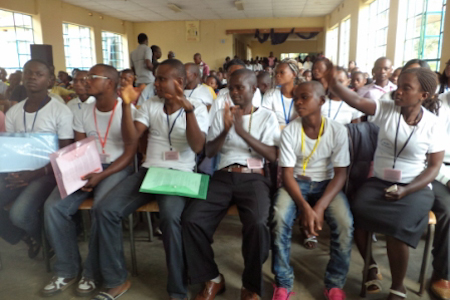
A lively discussion takes place during one of the plenary sessions
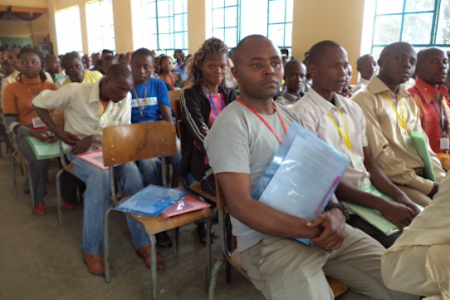
Participants arrived from three provinces in the Democratic Republic of the Congo as well as Burundi and Rwanda
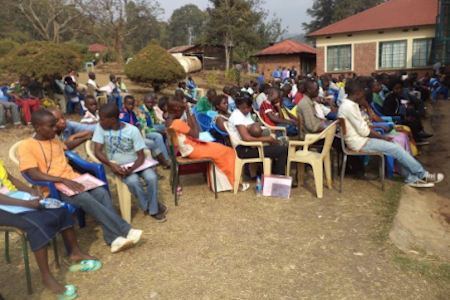
Some of the workshop sessions took place outside
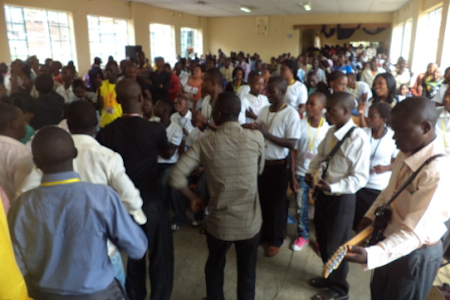
Music was present during the breaks and in many sessions
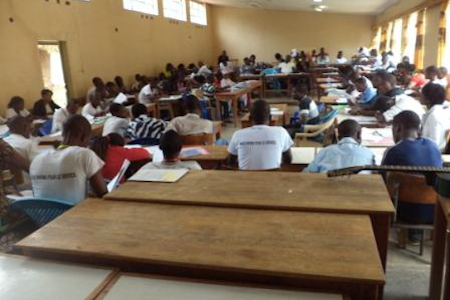
Groups studied and reflected on various themes with the assistance of facilitators
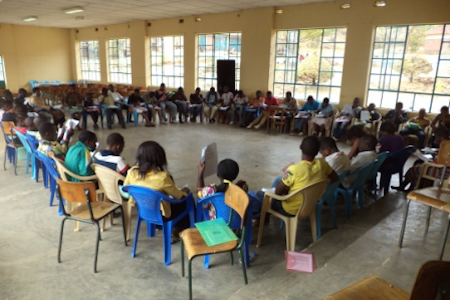
Discussions began in large groups and then broke into smaller ones in order to explore the ideas in light of their local realities
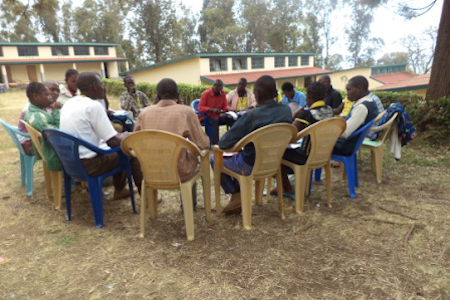
Participants discussed how they could assist in the education of younger youth in their communities
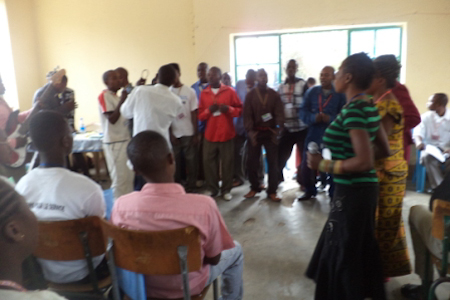
Singing and other arts infused both plenary and group sessions